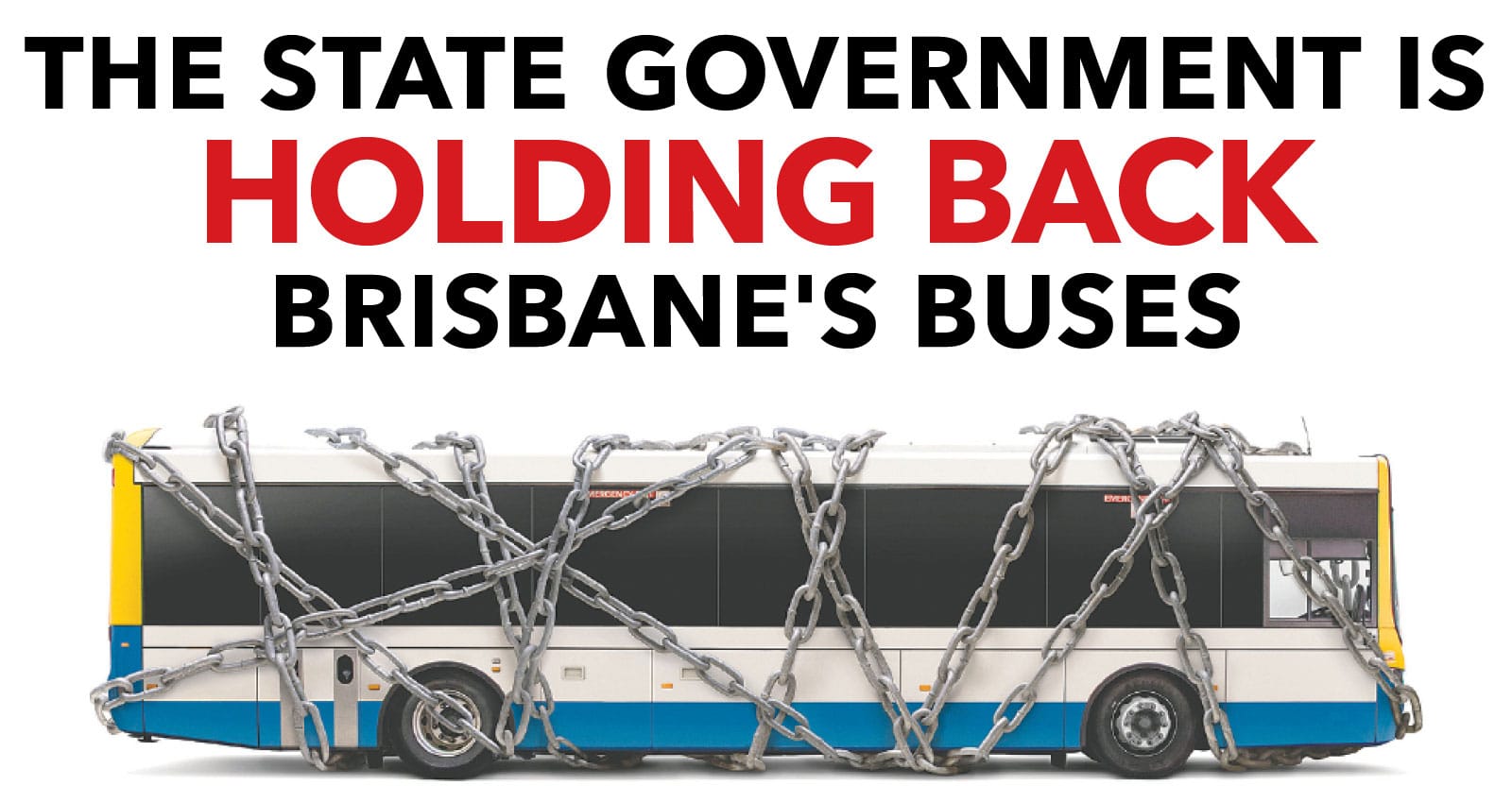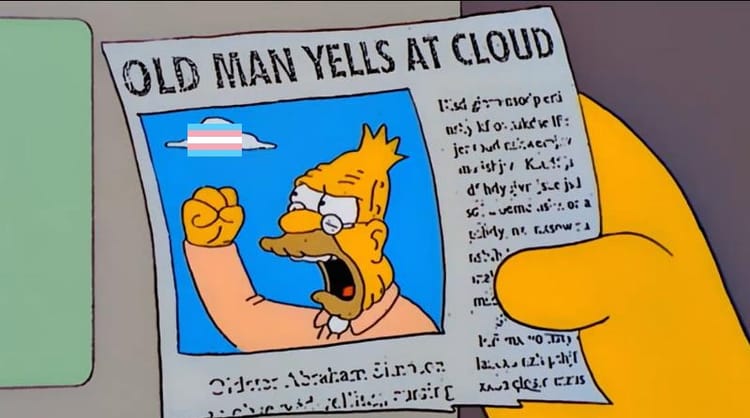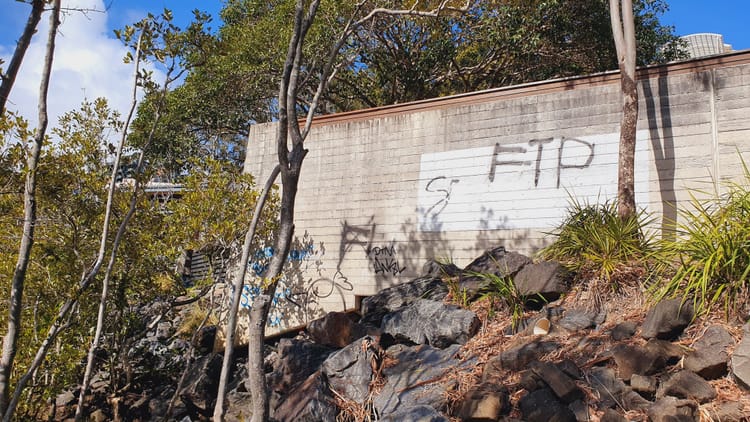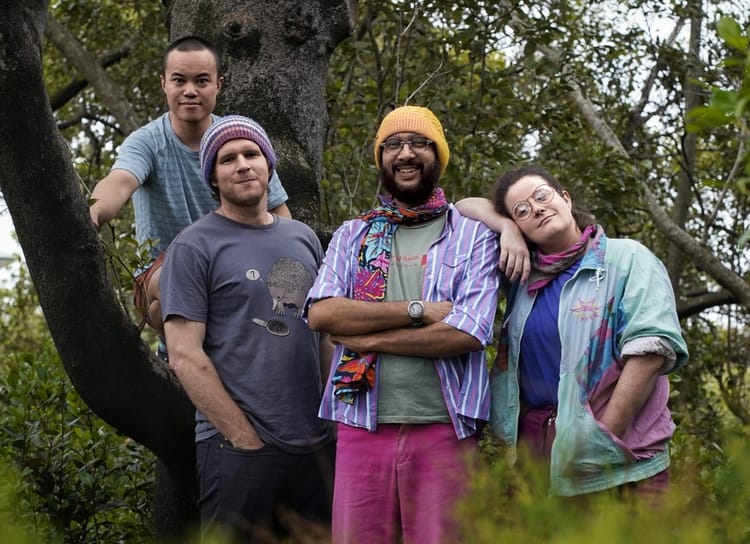LNP's bus funding campaign demonstrates city council's public advocacy potential

Brissie has just witnessed a rare but noteworthy local government phenomenon: LNP mayor Adrian Schrinner (whose party holds a very strong majority on Brisbane City Council) used council resources to run a public campaign calling on the Queensland Government to provide more funding for buses.
And it kinda worked.
Currently, Brisbane City Council is essentially a contractor running bus (and ferry) services on behalf of the state, which has generally provided about 75% of the funding while collecting all the fare revenue and having the final say on route planning, service priorities etc. It's a messy arrangement that unnecessarily duplicates lots of network planning and decision-making responsibilities across multiple levels of government. It ought to be restructured, but that's a huge job that no-one wants to touch.
Following the council's short campaign, the two levels of government have just agreed to a new funding model that the council seems happier with.
Others can debate the merits of the funding/revenue split, and whether BCC should have been more responsible in how it budgeted for the costly new Brisbane Metro project. Personally I think the state government and the city council should both be putting even more funding into public transport than this new arrangement will deliver.
But what interests me the most is the way the LNP used public funds to apply pressure on Queensland Labor. They ran billboard and newspaper ads saying the state government was "holding back Brisbane's buses" and I suspect they might have been on the verge of a big digital media spend too, although I didn't personally see any social media ads about it (please let me know if you did).

It's pretty common for the mayor and other LNP councillors to use the mainstream media and speeches in council meetings (which very few people pay attention to) to attack and pressure the state government on various issues, and they did that for this bus funding arm wrestle too. But spending public/ratepayer funds on direct attack ads like this isn't something I can remember seeing the council do in recent years.
After an initial rebuff, Premier Steven Miles seems to have caved pretty quickly, astutely recognising that allocating an extra $75 million of network funding is worth it to prevent the electoral damage of an ongoing council-funded campaign.
With the state election in October, Queensland Labor was particularly susceptible to this kind of pressure. It certainly helped that the Greens have also been campaigning hard on public transport. There was a real risk Labor would lose more votes (and potentially seats) to the Greens over this.
The Greens can probably also take some broader credit for the fact that the LNP councillors decided it was necessary to launch this campaign in the first place. During the city council election, we successfully highlighted that public transport in Brissie was also a local government responsibility, so Mayor Schrinner was eager to shift blame/focus back onto the state.
Some people have been understandably critical of the LNP-led council using public funds to run ads attacking the state government. While the LNP were careful not to break any rules against using council money for comms that could be defined as electoral advertising (i.e. they never explicitly mentioned 'Labor' in any of their ads), the party politics of this are obvious. I doubt Schrinner would have run a similar ad campaign if the state government was also controlled by the LNP.
But on balance, I actually think this was a pretty good use of council resources, and is something the council should do more often. We don't yet know exactly how much BCC spent on these ads – I'd estimate around half a million dollars. In return, the council has secured an extra $75 million in bus service funding for this financial year, plus ongoing funding commitments and a share in revenue. That's not a bad outcome.
The Greens have been criticised at times for suggesting that Brisbane City Council should do more about issues that are predominantly controlled by the state government. Our response has been that if the council believes the State Government is blocking essential, positive change, the council should use its platform and resources to pressure the government directly. That's essentially what happened here.
The council does in fact regularly advocate to the state government in private on a range of issues. But I think publicly pressuring higher levels of government is an important part of the role local councils can and should play in society. The fact that local government doesn't do this more often helps explain why state and federal governments so frequently get away with decisions that are contrary to the wider public interest.
While I worry about what kind of stuff an LNP-dominated council would choose to advocate for if this approach became more common, I don't think it's wrong in principle for a council to use some of its resources to publicly campaign for state and federal governments to make different policy or budgetary decisions.
When you think about how much reach the council has into our day-to-day lives, the amount of pressure a council could bring to bear on higher levels of government is significant... Imagine if every rates bill residents received included a little note from the council saying "your rates bill would be cheaper if the state government increased funding for active transport infrastructure" or if at every council-funded festival there were signs everywhere saying "if you'd like to see more events like this in your neighbourhood, tell the federal government to increase support for the arts and live music."
A council as large as Brisbane's could – if it wanted – exert far more influence over state and federal political decision-makers. The fact that BCC doesn't do this is itself quite revealing.
Frequently, when resident groups or Greens/independent councillors call for safer speed limits, or better public notification of development applications, or increased infrastructure charges so developers contribute more towards local facilities, the default response from the LNP administration of Brisbane City Council is some variation of "well that's controlled by the state so there's no point getting angry at us."
This past month has shown that to be a disingenuous deflection. When the mayor says "that's controlled by the state government" but declines to put any resources towards advocating for state-level changes, he's essentially signalling that his team (and the property developers and other corporate interests who have his ear) are quite happy with the status quo.
But the cat's out of the bag now. The LNP council administration have revealed through their actions that they have the capacity to publicly pressure the state government when private advocacy has failed. The council's leverage is of course strongest during an election year, but there's always another election around the corner.
From now on, if residents are concerned about an issue and the council's response is to blame-shift to state or federal decision-makers, the next question should be "well what steps is the council taking to advocate for change?"
It's now clear that the mayor has a much broader range of tools in his toolkit than just privately emailing government ministers and complaining to the media when they don't reply.

Hi! This is a quick reminder that you can subscribe to my semi-regular newsletter to get a heads up when I publish articles like this. Paid subscriptions in particular support me to write more often. Thanks!





Member discussion